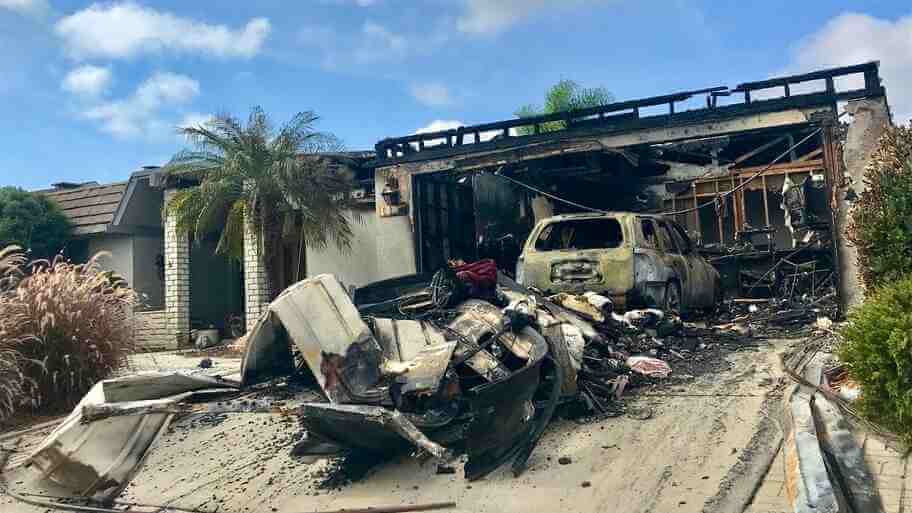No one can predict the future. Sometimes unexpected and unthinkable things happen, and our homes can be damaged by things beyond our control. We get into the habit of thinking that our homeowners’ insurance is a catch-all to reimburse us for these calamities, but that just isn’t the case.
What Is Not Covered by Home Insurance?
Unfortunately, there are several things that home insurance won’t pay to repair. Here are some notable exclusions you should know about. Read on to find out the kinds of damage your home insurance won’t cover.
1) Everyday Wear and Tear
Every home suffers damage from everyday use. Worn carpeting and flooring, leaking pipes, and gradual deterioration of the exterior and the roof shingles happen quietly over time, but that doesn’t mean the insurance company will pay for these things. Insurance covers events that are uncontrollable. This doesn’t include damages that you could resolve through basic maintenance and repair. Homeowners have a duty to perform their own repair and maintenance, and any problems that occur because of neglect are not the insurance company’s responsibility.
Following schedules and keeping checklists, such as a roof preventative maintenance checklist, ensures that proper repairs are made when needed.
2) Rodents, Termites, and Other Uninvited Creatures
Dealing with infestations is difficult and can be expensive.
Is rodent damage covered by homeowner’s insurance? There are situations where problems caused by infestations are covered by insurance and situations where they are not. As with wear and tear, it depends on whether the damages are unexpected or predictable. Insurance companies expect homeowners to rid their houses of infestations, repair damage, and clean up waste materials, nesting materials, and droppings. Failure to do so is considered neglect, and the homeowner will be responsible for any damages that result.
On the other hand, if something that the homeowner can’t plan for occurs, it may be covered. For example, if a mouse or a rat chews through electrical wires and causes a fire, the insurance company will pay the repair costs. Similarly, suppose the structure of a house is compromised in a way that allows termites or other destructive animals to invade it. The insurance company will pay to correct that situation since the infestation could not have been predicted or prevented by the homeowner.
Other situations, such as a woodlice infestation in homes, are not covered because the creatures are harmless to humans and cause only minimal inconveniences.
3) Flooding and Water Damage
Many property owners believe that destruction caused by floodwaters is covered by insurance, but it is not. This is especially true for people who live in areas considered floodplains, or land areas adjacent to or near bodies of water that are naturally susceptible to flooding activity. The reasoning is that flooding is deemed to occur gradually as opposed to accidentally or suddenly. A basic rule of thumb is that if the water was on the ground before entering the home, it is flood damage.
An exception is granted to those who have grandfathered flood insurance. This means that homeowners who carried flood insurance before maps were changed to designate their locations as high-risk areas can still be covered.
4) Mold Issues
Determining if a mold situation is covered by home insurance is tricky because it can be difficult to identify the cause. In general, a mold problem that was created by a sudden leak that was repaired right away may be covered by insurance. However, mold that occurs because of neglect or poor maintenance, including habitually leaking pipes, improper construction techniques, or natural flooding, would not be covered. Basically, the homeowner is responsible for the problem if they were not trying to avoid or correct it.
5) Naturally Occurring Ground Movements
Landslides, earthquakes, and sinkholes are events that are not covered by insurance. Notable exceptions are in the states of California, Florida, and Tennessee. Due to the frequency of earthquakes in California, insurers offer optional earthquake coverage. Sinkholes also occur more often in Florida than in any other state, so insurers are required to offer sinkhole protection. Insurers are also required to offer sinkhole protection in Tennessee, although it isn’t mandatory that homeowners purchase it.
6) Injuries Inflicted by Aggressive or Dangerous Dogs
Some insurance companies will not insure applicants who own aggressive dog breeds like Rottweilers, wolf crossbreeds, and pit bulls. This makes sense given that injury claims from bites and attacks took a toll of $800 million in claims in 2019. Other companies may not judge based on the breed of the dog alone but on its history of being threatening or injurious.
7) Acts of Government Officials
Insurance companies are not responsible when government or public officials make judgments against an insured property, even if the property, buildings, or contents are confiscated or condemned. These issues must be addressed in court.
8) Damage Caused by Windstorms Where Hurricanes are Prevalent
In states where the risk of hurricanes is highest, including the Gulf and Atlantic coasts, losses caused by hurricanes are not covered. However, it may be possible to obtain separate hurricane or windstorm insurance in these areas. Some insurers offer wind damage deductibles as an alternative. An insurance adjuster for natural disasters may be called upon to verify that the damage was caused by the storm and not by anything the homeowner did.
9) Nuclear Accidents
This coverage isn’t offered for the simple reason that nuclear power companies must provide their own liability insurance in case an incident should occur. Anyone whose home is damaged by the actions of a nuclear power installation should report to the nuclear agency rather than the home insurance provider.
10) Deteriorated Conditions Caused Intentionally or Through Neglect
Once again, the principle is that homeowners have a duty to properly repair and maintain their homes. Insurers are not required to cover damages that occurred because of neglect. Additionally, insurance companies are not liable for any damages that homeowners caused but didn’t repair.
Following Up
Natural disasters, mold, infestations, and seismic activities aren’t limited to specific geographical areas. Someone who doesn’t live in a floodplain but whose property is near a dam or reservoir may have concerns about flooding. Likewise, someone who lives in Kansas or Oklahoma may be concerned about windstorms and tornadoes.
All homeowners should read their insurance policies carefully to determine what will and won’t be covered. You should bring questions and concerns about coverage to your insurance agent. Request a review of your policy to be sure that all likely scenarios are covered. That may entail adding separate coverage for disasters so that gaps in coverage can be addressed. Taking the time to know what your policy covers may save money and frustration in the future.
Featured Image: Twenty20








